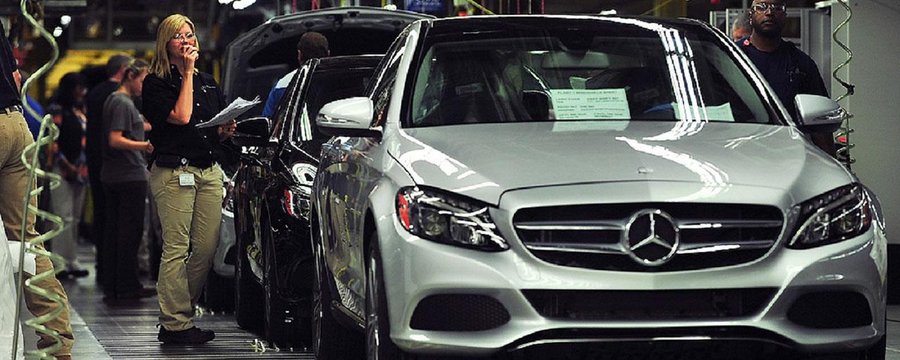The switch to electric cars puts 75,000 engine and gearbox manufacturing jobs at risk, a study commissioned by German trade unions and the auto industry showed.
The auto industry accounts for 840,000 jobs in Germany, of which 210,000 are tied to powertrain production, according to the Fraunhofer Institute of Industrial Engineering, which conducted the study.
The rollout of emissions-free vehicles creates some new jobs, in the area of vehicle electronics and batteries, but electric cars will result in less work for assembly workers, Germany's trade union IG Metall warned.
"By 2030 every second job in passenger car powertrain will be impacted directly or indirectly by electromobility," IG Metall said about the study, which is based on data provided by Daimler, BMW, Volkswagen and auto suppliers Bosch, ZF and Schaeffler.
"Politicians and industry now need to develop strategies to manage this transformation," said IG Metall's chief, Joerg Hofmann.
Companies need to embark on sweeping job retraining schemes to qualify workers for new technologies, while politicians need to come up with a comprehensive industrial and employment policy, Hofmann said.
The 75,000 threatened jobs are based on the assumption that 25 percent of all cars will be electric by 2030, 15 percent hybrids, and 60 percent petrol and diesel variants.
A more rapid adoption of electric vehicles could threaten 100,000 jobs, IG Metall said.
Volkswagen's top labor representative, Bernd Osterloh, said electric powertrains have only a sixth of the components when compared to combustion-engined variants, which means electric cars can be assembled more quickly.
Electric cars take 30 percent less time to assemble than current passenger vehicles, Osterloh said.
A battery factory requires only a fifth of the workforce when compared with an engine plant, Osterloh said.
BMW labor representative Peter Cammerer said German industry should beware of giving away technology and know-how to Chinese, Korean and Japanese competitors. Germany is leading in terms of battery cell research but is giving battery contracts to foreign suppliers, Cammerer said.
"We need to be selling innovations to the Chinese and not the other way around," Cammerer said.
Related News

